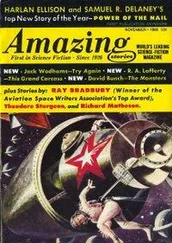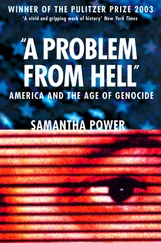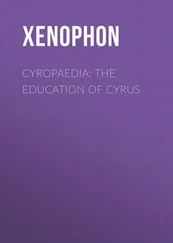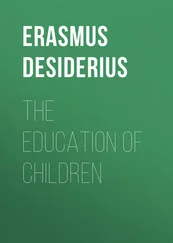I stood on the threshold, snuggled against my father’s leg. My brother and I watched the two people we loved most speak to each other in subdued tones, but their rage was unmaskable.
“Look at this,” my mother said, gesturing to the scene inside. “Do you really think this is an environment for children?”
When Mum insisted that we were leaving, I walked a few steps toward her. My dad told me to come back, and I froze. Stephen, who had followed me to the door, shuffled forward into Mum’s embrace. But I stood between my parents, paralyzed by the impossible choice.
My mother’s voice grew sterner as she told me to get into her nearby car, its engine running. I did as I was told. And before I had fully processed what was happening, we were driving away.
I turned to look out the back window—a scene I later saw reprised in Hollywood movies—and in the doorway I saw my dad, deflated, watching our car depart. He grew smaller and smaller until we turned the corner and he vanished from sight.
That night, we drove from Dublin to Mum’s hometown of Cork, where we stayed with her sister, Anne. Over the next few days, my father and a friend from Hartigan’s, a member of the Irish parliament, began calling my mother, threatening to secure an injunction to prevent us from leaving the country. As their warnings grew more convincing, Mum began to worry that another legal battle would delay our return to the United States, where she was expected the following week to resume work. In a panic, she asked my uncle Garry, her brother-in-law and the high-spirited family fixer, to drive us to Shannon Airport.
The nighttime drive was harrowing. Uncle Garry ran red lights and drove so far over the speed limit that I felt we were in a car chase. Mum’s constant checking of the passenger-side mirror was a telling sign that the grown-ups were worried. Only now—forty years later—do I realize the meaning of that frenzied drive: although she was in the right, my mother must have had no faith that the Irish courts would see the situation similarly. If my dad had appeared before a judge sober while we were still in the country, she could have lost us.
When we arrived at the airport, as the clock ticked slowly toward the hour of our departure, Uncle Garry bought Stephen and me heaping Irish breakfasts. But my mother neither ate nor took a proper breath until our flight was in the air.
Once we were back in our suburban Pittsburgh home, Mum telephoned Dad to tell him that he couldn’t be trusted to put our welfare first. Not only was he drinking too much, she said, but he had effectively threatened to kidnap us. She couldn’t take time away from work to chaperone our time together, she informed him, so if he wanted to see us, he would need to fly to America.
DURING THE YEARS THAT FOLLOWED, I threw myself into my new American life and began to thrive in school. My baseball skills improved, and I started learning the basics of basketball. No longer the awkward new girl with the Dublin accent and the pleated skirts, I developed a fresh set of friends. Their families brought me to barbecues in the summer and skiing and ice-skating in the winter. Although Mum was working long hours as a doctor, she would get home most summer nights in time to grill us corn on the cob as Pirates games played on the radio. Gradually, as she was able to take vacations, she and Eddie took us white-water rafting and to American historical sites like Gettysburg.
Although she said my dad had forfeited the custody agreement, my mother fulfilled the rest of its terms by taking me to Mass and continuing to teach me Irish. Nothing was worse than being summoned on a sunny day to improve my Gaelic. “Mum,” I would declare, “this makes no sense. Even if I lived in Ireland, I wouldn’t speak this language. And in America it is even more useless.” This logic did not move her. She forced me to review flash cards and write out sentences as if I would soon be back at Mount Anville, taking an exam.
Although my dad and I exchanged letters, and I sent him my unimpressive color-by-numbers artwork, he did not visit. When Susan nudged him, he had a ready response: “I just need to get sorted.” But he was never able to admit he needed help to overcome his drinking, and he never did get sorted.
I have no conscious memories of pining for my father, but even as I lapped up the American experience, a large part of me was waiting. I was waiting for word that he would visit, waiting for him to telephone (which he did, but rarely, as he kept misplacing our number), and waiting for him to once again be my companion. Mum never spoke ill of him, instead describing his “brilliance” and athletic gifts; but she made clear that he was an alcoholic, a verdict I accepted. Slotting my dad in this category was tidy. The designation allowed me to blame the separation on something other than my father. And yet, because I couldn’t comprehend the true nature of addiction, I thought that if my dad simply tried harder, he could recover.
I believed that the magnetic bond between us would motivate him to get his act together—that I would motivate him. But as I waited, I did not feel anger at him for staying away. Instead, I began to mentally replay the Christmas Eve scene on the steps of our Dublin home. My dad hadn’t been the one to leave me, I reasoned. He had been willing to break the law to be with me. I was the one who had left. I had made a choice that night when I heeded my mother’s call.
Even as a feeling of regret and shame began to gnaw at me, I felt sure I would have the chance to set things right between us. So many Irish alcoholics lived well into old age that I never associated drinking with poor health. While four years had soon passed and my father still hadn’t come to visit, I was still positive that we would be reunited. My dad would make sure of it.
IN 1983, MUM AND EDDIE moved us from Pittsburgh to Atlanta, Georgia. After my mother was recertified as a nephrologist, they joined the faculty of Emory University School of Medicine. We packed up and made the move south, arriving at our new home a few days before I began eighth grade—which then marked the beginning of high school.
One afternoon, more than a year after our move, I lay sprawled out on the gray carpeted floor of my bedroom, doing my history homework. My walls were plastered in pictures of my idols—everyone from Mike Easler of the Pittsburgh Pirates to Jack Wagner, the hunky actor who played Frisco on the soap opera General Hospital . From the sound of footsteps in their bedroom, I realized that both Mum and Eddie had arrived home earlier than usual. Behind closed doors, Mum talked quietly on the phone and had hushed conversations with Eddie. Just the family was present—Eddie, Mum, Steve, and me—but the house seemed crowded with tension. I sensed that something bad had happened.
Finally, Mum knocked on my bedroom door and sat down beside me on the floor. Her voice tight, her eyes red, she said, “I have bad news.” I couldn’t conceive of what might be coming, but I didn’t have to wait long. “Your father has died.”
I did not react. I looked at her blankly, refusing, with my entire being, to process what she had said.
“The funeral is Monday,” she continued. “I don’t think you should go.”
I asked her how my father could have died—so suddenly, so inexplicably—at only forty-seven.
“The drink,” she said.
“But I didn’t know,” I said slowly.
“None of us knew the extent of it,” she said.
In recent years, my dad had apparently dramatically increased the amount of alcohol he was consuming, arriving at Hartigan’s as soon as it opened in the morning. By the end, he had amassed such large drinking debts that the owners had finally refused to serve him. The alcohol had so ravaged his body that he had stopped eating. He and Susan had broken up, but my mother told me that Susan had been the one to find his body.
Читать дальше












